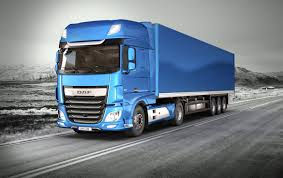Ease Truck Insurance: Cargo Insurance Overview
- elly
- Aug 8, 2019
- 3 min read

If you have ever talked to someone who is really familiar with the trucking industry, you will realize that this is highly regulated and specialized.
It becomes a little easier to understand when you think about how dangerous commercial trucks are for employees and the general public - we are talking about the millions of pieces of heavy equipment that circulate on the highway every day.
Not to mention how important the industry itself is - without commercial trucks, our economy will stop, (it's kind of scary when you think about how volatile the world oil situation is ...)
As a result, the commercial truck insurance industry is also highly regulated.
Coverage is often determined by state or federal laws when handling trucks with hino dutro specific applications, and even more so when you start seeing certain cargo. Many dangerous cargo such as gasoline, other fuels, and hazardous materials such as chemicals and pesticides are driven by commercial trucks every day.
Cargo largely regulates a large part of the truck insurance industry. Here are some of the most common types of cargo insurance:
General Carriage
Many freight forwarders deal with hazardous materials, but there are many that deal exclusively with the delivery of ordinary everyday goods. For these shippers, public transport policies are anywhere from $ 10,000 to $ 100,000 generally, which covers most of their usual shipments with adequate coverage.
Insurance for Moving Trucks or Household Goods Haulers
Both types of cargo insurance mean vans that move with the same goods have privileges in many countries because the nature of their business requires them to operate generally on residential roads where most commercial trucks are prohibited from driving.
In addition, moving van loads can vary dramatically based on customer value, so special mobile truck insurance policies allow fluctuating coverage so that moving companies do not continually find themselves under-insured or overly insured.
Generate Haulers Insurance
The produce is a highly regulated commodity because it is very important for the country's food supply and almost always contains damage per load.
Production trucks are also often cooled, resulting in carrier insurance which is typically responsible for additional equipment and the possibility of frequent decay.
Hauler of Dangerous Material
Transport of hazardous materials is truly high-value truck insurance and must be based on the law. While public transport policies are usually below the $ 100,000 hino dutro 110 hd limit, transport of hazardous materials is almost always at the 7-digit coverage level.
Aggregate Carrier or Dump Truck Insurance
Aggregate is a construction term used to describe what you see in most loose gravel garbage trucks, pavement supplies, concrete or other building materials. Garbage truck insurance is highly specialized because their loads are usually of little value, but they are also more lax and can be lost. The mechanism in which dump trucks operate is far more dangerous than manually dismantled trucks.
Related policies are sometimes referred to as dirt, sand and gravel transport or transport of building materials, although building materials usually include tractor-trailer construction trucks rather than dump trucks.
Tow Truck Insurance
Tow trucks are always used in areas that are quite dangerous - whether on a mountain top, on embankments, or on the side of highways and busy highways. Plus, their "charge" is always another car that can fluctuate in value dramatically. As such, tow truck insurance is its own entity, which is responsible for the dangerous situation and variable value of this cargo.



Comments